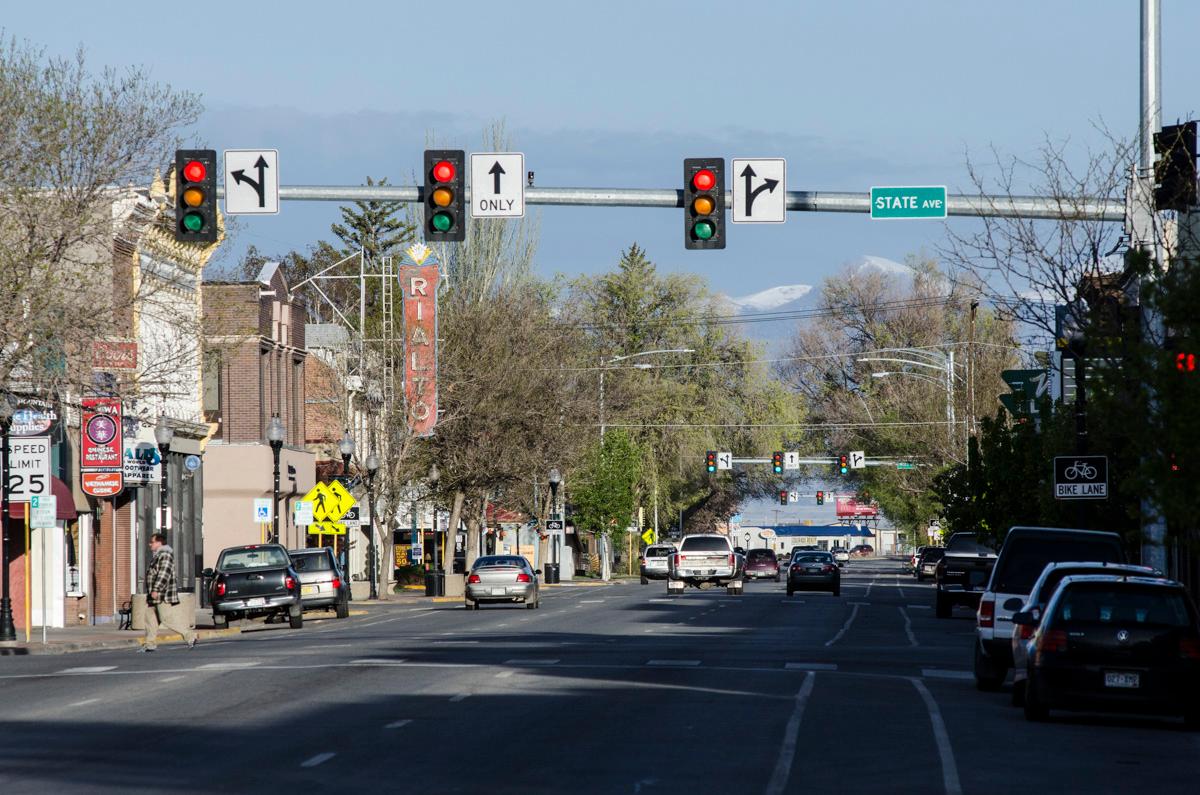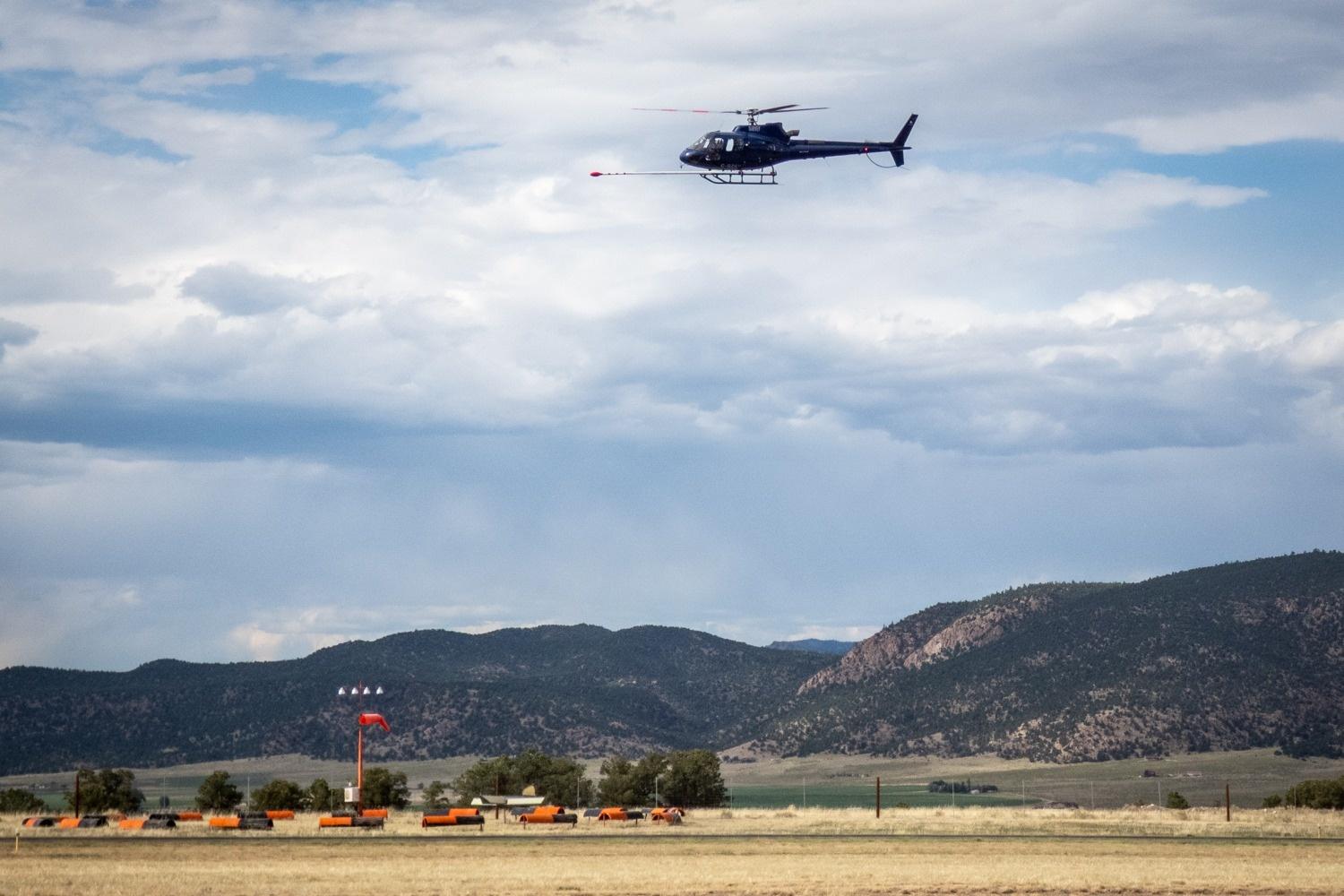
Updated May 30, 2020: The Colorado Department of Public Health and Environment approved Elbert County’s request to open gyms and gatherings Friday afternoon. The department has approved a total of 39 variance requests and has 13 pending applications.
On May 4, the commissioners in Elbert County, a sparsely populated county just east of Denver and Colorado Springs, submitted an application for a variance of the state’s public health order. If granted, the waiver would have allowed the county to open houses of worship, gyms, restaurants and other businesses and events.
The county also asked to hold socially distanced high school graduation ceremonies for each of its four high schools, three of which had 15 or fewer graduating students.
Since late April, the Colorado Department of Public Health and Environment has allowed counties to apply for variances on regulations under its “safer-at-home order.” Requests are evaluated using criteria related to the disease’s prevalence in the county, hospital capacity, and the county’s proposed containment measures. Nearly half of Colorado’s 64 counties have applied for a variance and nearly all of them, 31, have been approved.
Elbert County commissioners expected that their request would be granted. There have been only 51 cases here since the coronavirus began to spread across Colorado. The population density of the county is also very low, about 12 people per square mile.
"We have natural social distancing going on all the time,” said Grant Thayer, one of the commissioners. "Most of us have to drive more than 10 miles to get groceries."
After more than two weeks, CDPHE had not released a final decision. Still awaiting a decision on May 20, the commissioners voted unanimously to move ahead with part of their variance request on their own by opening houses of worship and allowing the graduation ceremonies. The county’s application was formally denied three days later.
Health officials cited a lack of detail in the application, but the commissioners’ vote was final.
According to Thayer, the decision was not intended to defy the state order, but to do what they felt best to fit the situation on-the-ground.
“We felt like we had to recognize that we had some special circumstances in Elbert,” he said. "I understand that the state government looks at the state as a whole but...there are so many jigsaw pieces that are different colors and different shapes and have different issues."
All five of the variance applications that received negative state feedback were from rural counties. Officials from those areas have expressed frustration with the state. Some say CDPHE has not done enough to take into account the realities in rural areas, which generally have had fewer cases and events and businesses that draw fewer people.
"I just wish that they would contact somebody...and see how all these rules fit before making the determinations that they did,” said Darius Allen, a commissioner in Alamosa county, which has not had its variance application approved by CDPHE. “If you're in a county, your population is under 25,000 people, then let the local government and the local health department...in that county help you determine what's best instead of a state health department in Denver that knows absolutely nothing about Alamosa."
Allen noted outdoor activities like calf-roping and motocross events that are common in Alamosa are still not allowed — even without an audience. Thayer also said that part of their variance would have allowed for cow branding days, which often bring together multiple families at once to complete the work.
Commissioners in both Alamosa and Montezuma counties also say that their applications are judged under different criteria than other counties that have already been approved.
In a letter sent on May 23, CDPHE said they wanted to continue to monitor agricultural outbreaks in Alamosa County and the surrounding area before approving the variance. Within the county, there has only been one agricultural outbreak, 18 people infected at a mushroom farm. The state’s outbreak data does not list any agricultural outbreaks in Alamosa’s surrounding counties, and neighboring Rio Grande County has been granted a variance.
"I felt like it was kind of like a slap in the face to us to say this will be determined based on the region instead of your county when everyone else has had their variances based on county issues,” Allen said.
In Montezuma County, officials also feel like they are being judged unfairly based on their neighbors. Though the county has had only 37 cases, CDPHE rejected the variance application due in part to high incidents of the virus in neighboring New Mexico counties. The letter noted that Montezuma’s cases are rising and that opening businesses in the county may attract travelers from those areas.
“Although your neighbor has an issue, it doesn’t mean that we have an issue,” said Jim Candelaria, a Montezuma County Commissioner.
Since receiving feedback from the state, Elbert County has resubmitted its application, Alamosa County is still waiting on a final determination and Montezuma officials are waiting for a letter of support from the Ute Mountain Tribal Council, which has land that sits within the county.
In the meantime, none of the counties said they had plans to throw their doors open completely or to defy the state with their own order.
"We were very careful and we are acting in the interest of public safety,” said Thayer. “We respect these judgments, but we certainly have more local information."








